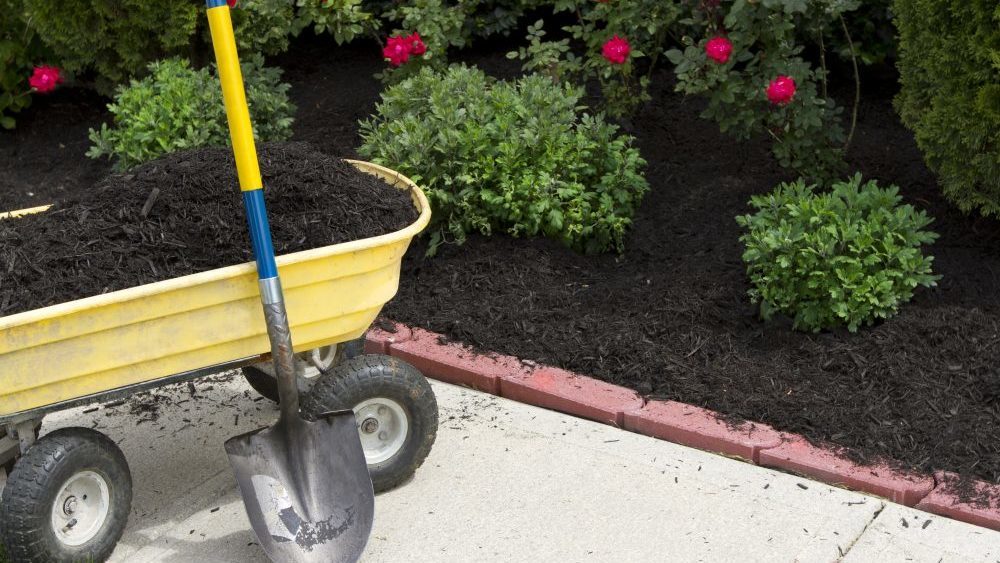Healthy flowers and shrubs depend on good soil and plenty of water. But you’re wasting your time and money if you don’t add a third ingredient to the mix — a three- to four-inch layer of quality mulch. Let’s dig a little deeper to explore the benefits of this material.
Importance to your Landscape
Mulch insulates plant roots from the temperature extremes of summer and winter, provides a weed barrier, and helps retain precious moisture in the ground. This becomes even more important in drought-prone areas. After watering or rain, you want that life-giving moisture to stay in the soil instead of evaporating. On the flip side, with too much rain, mulch prevents soil erosion.
What Exactly is Mulch?
Not to be confused with compost, mulch stays on top of the soil to act as a protective blanket. Compost is organic material such as food waste and plant scraps that have decayed and are mixed into the soil to promote root growth.
Types of Materials
- Wood, typically from trees that have been shredded, provides an organic source of protection and nutrients. The nutrients in natural wood leach into the soil in a slow release. Cedar and cypress are beautiful mulches and have the added benefit of being a natural insect repellent. Hardwoods, such as oak, last longer than other shredded tree materials, needing replacement less often. Pine straw is an inexpensive and attractive mulch, but it deteriorates more quickly and is easily blown about by the wind. Pine straw is also flammable and has been the cause of house fires.
- Cocoa, made from the ground shells of cocoa beans, provides a rich color and aroma. All organic mulches decay over time, but cocoa mulch has good longevity. Note: If you have dogs, choose a variety that has been heat treated to remove any dangerous ingredients that could harm your pets.
- Straw and grass clippings provide good temperature insulation, but not many nutrients.
- Leaves provide an excellent mulch when ground into small pieces in a thick layer on your flowerbeds. It decays into a nutrient-rich food source for your plants.
- Rock mulch, including lava rock, river rock, crushed granite, and gravel, prevents erosion and can be quite attractive when choosing a color that coordinates with your home’s masonry and trim. It doesn’t fade or lose its luster and lasts many years but is much more expensive than natural mulches. Rock mulch also fails to provide the same insulating effect that wood mulch offers and it doesn’t deliver slow release micronutrients.
Related – Top Ten Essential Gardening Tools


